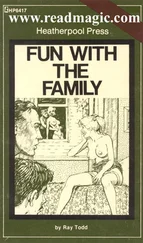By the time I arrived from the airport — this was still in the days of fifty-dollar flights — Lucy would have done her marketing on Dolores and picked up her exchange spike at the Haight Free Clinic. My contribution to the picnic was the coke I had bought down south. Lucy kept her small room very neat. We would embrace. Sometimes we would hold each other, as chaste as Hansel and Gretel, to show we cared. We hoped we cared. Both of us were beginning to stop caring about much.
I would snort coke and Lucy's smack. I never shot it.
Sometimes it made me sick. Often it provoked brief hilarity. I would watch her fix — the spoon, the lighter, the works, as they say — with something like reverence. Listen, I had grown up to Chet Baker, to Coltrane, to Lady Day. To me, junkies, no matter how forlorn, were holy. Of course at a certain point if you've seen one, you've seen them all, and this was as true of us as of anyone. Much of the time we looked into each other's eyes without sentiment. This was better than staring at your toe. In each other's dilating pupils we could reflect calmly on the uneasy past. The lambent moments expanded infinitely. All was resolved for a while. Once she began to dream aloud about going to Jerusalem to do research for the script that I would write, and about kicking the jones in the holy places.
We chose silence sometimes. It wasn't that we never spoke. In a certain way you might say we were weary of each other. Not bored, or fed up, or anything of that sort. Worn out after the lives we'd tried to make intersect, and conducting a joint meditation on the subject. There were times I'll admit I cried. She never did, but then she was always higher.
Every once in a while Lucy would try to persuade me to fix the way she did. We never went through with it, and I felt guilty. I was, after all, the guy who had not gone bungee jumping. Lucy never pressed it.
"If you died, I would feel like I killed Shakespeare," she said.
I was never sure whether we thought this would be good or bad.
Mortality intruded itself regularly into our afternoons because it seemed that half the people we knew were dead. I supposed that down in sunny Encinitas my Jennifer was expecting to hear that I had succumbed to the kiss. During one of my later visits — one of the last — Lucy told me about a conversation she'd had at the UC hospital emergency room. A doctor there had said to her: "You're rather old to be an addict." She laughed about it and did a self-important, falsely mellow doctorish voice repeating it.
To me, Lucy was still beautiful. I don't know how she looked to other people. She was my heroine. I did notice that lately she always wore long sleeves, to hide the abscesses that marked the tracks where her veins had been. Her eyes didn't die. Once she looked out the small clear window that looked up Nob Hill and made a declaration:
"The rest of my life is going to last about eleven minutes."
The line was hardly lyrical, but her delivery was smashing. She looked great saying it, and I saw that at long last she had located the role of her lifetime. Everything before had been provisional, but she had made this woman her own. It seemed that this was finally whom she had become, and she could do almost anything with it. Found her moment, to be inhabited completely, but of course briefly.
I went home then, the way I always had, and saved almost everything. I saw that Lucy and I, together, had at last found the true path and that this time we were walking hand in hand, the whole distance. Again I refused the jump. She was more than half a ghost by then, and it would be pretty to think her interceding spirit saved me.
One of us had to walk away and it was not going to be Lucy. She was the actor, I thought, not me.
IT WAS SAID OF Duffy that he had threatened his wife and her lover with a crossbow. His own recollection of that celebrated night was scattered, but the heroic archaism of the story, featuring Duffy, his ex-wife Otis, the young novelist Prosser Spearman and Duffy's well-oiled, homemade, hair-trigger mechanical bow and arrow, kept it ever new. Each autumn it was revived, like a solar myth, for a new generation of art students.
"Never happened," Duffy would snarl when some kid worked up the nerve to confront him with the story. The brazen student was almost invariably female, often some wild-eyed, self-destructive, druggy, sexually alluring waif, a girl possessed of an original talent, deficient only in draftsmanship and sense. "Pure invention," he would insist.
But Duffy himself was not so sure. And no one wanted to let the story pass out of currency. It survived as an oral recitation rather than a text, suggestive in its passion and formality of medieval romance, the chanson de geste, the border ballad, irresistible to young troubadours.
One winter night, the story went, the snow lay deeply on the ground. (It was always a winter story; there was always a lot of snow. Why?) Under the blizzard's whirl Duffy sat in the cold and dark of his parked car, bitterly watching his own house, savoring with saturnine irony and rage the jolly fire at his cozy hearth. In the cheery warmth of the living room, he knew, the rat-haired potbellied writer Prosser Spearman was having his way with lithesome Otis, Duffy's wife of some years. In the dancing light and shadow, on his own wolf skins and woven rugs, she was bestowing on Prosser the turns of her perfect derriere, her small round breasts, allowing him the very wands and cups, swords and pentacles of all that was Otis.
Duffy remembered that part of the evening well enough. He remembered also the lush consolation of the expensive single-malt that fueled his tears. His sitting out there — it had all happened. And that he had a crossbow, that he had made it himself as another man, Prosser Spearman for example, might delicately fashion his own harpsichord? True as well.
Next, according to the ballad, Duffy climbed from his car with the kit-assembled crossbow armed and set. He made a grim, unsteady shape under the falling snow, moving across the icy drifts of the road and of his own lawn. There was a glass-paneled door that opened to his studio, adjoining the living room where Otis and the inventive scribbler wantonly lay. He found it open to the turn of his hand. He slipped inside. All that, Duffy realized in a combination of recall and later evidence, had taken place.
Then, they said, in the studio Duffy had taken off all his clothes. Except, they said, for his Jockey shorts — Jockey shorts and the tweed Connemara angler's hat he always wore against winter storms. Then he had charged into the snug warm parlor and aimed his polished oaken crossbow's arrow at the adulterers before his fire.
"All right, motherfuckers," he had screamed dementedly into the night, "Cupid is here."
Well, Duffy thought, maybe so. But it was his house, his crossbow, his Otis. How, he might have challenged anyone — perhaps he had — was he to know what posing, juiced-up, cut-and-paste bastard of a creative-writing creep was on his floor? He might have been defending his home and his wife's health and safety. Duffy knew better in these weak piping times than to speak of honor.
Whatever the circumstances, Otis had been very angry. So angry that she had ended by marrying the talented youth, a scandal since he was ten years her junior. The young writer had divorced his own wife, preempting her elopement with the chairwoman of a women's poetry workshop she had been attending.
Duffy was lucky enough to keep his job at the college, but he lost the faculty house that he and Otis had occupied, the very house where he had confronted his betrayers. This meant that the male tenant of the house was now his enemy and Otis's husband. This circumstance caused him a great deal of regret and rage. He had no choice, however, but to digest the venom of his spleen, since neither Otis nor the college nor the town would be complacent in the face of another of his potentially homicidal assaults.
Читать дальше












